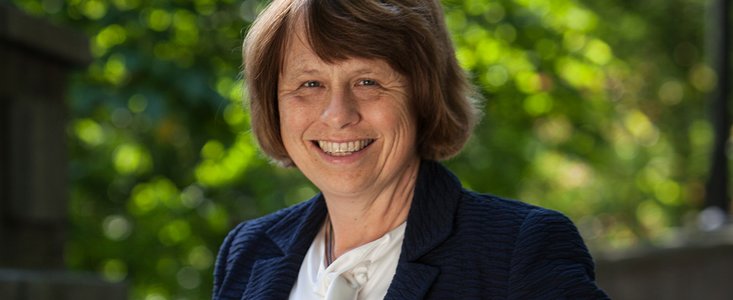- News
- Science
- Scientific Bodies
- Divisions
- Commissions
- Commission A1 Structure
- Commission A2 Structure
- Commission A3 Structure
- Commission A4 Structure
- Commission B1 Structure
- Commission B2 Structure
- Commission B3 Structure
- Commission B4 Structure
- Commission B5 Structure
- Commission B6 Structure
- Commission B7 Structure
- Commission C1 Structure
- Commission C2 Structure
- Commission C3 Structure
- Commission C4 Structure
- Commission C5 Structure
- Commission D1 Structure
- Commission E1 Structure
- Commission E2 Structure
- Commission E3 Structure
- Commission E4 Structure
- Commission F1 Structure
- Commission F2 Structure
- Commission F3 Structure
- Commission F4 Structure
- Commission G1 Structure
- Commission G2 Structure
- Commission G3 Structure
- Commission G4 Structure
- Commission G5 Structure
- Commission H1 Structure
- Commission H2 Structure
- Commission H3 Structure
- Commission H4 Structure
- Commission J1 Structure
- Commission J2 Structure
- Commission J3 Structure
- Commission X1 Structure
- Commission X2 Structure
- Past Commission Organising Committees
- Working Groups
- Centres
- Scientific Meetings
- Rules & Guidelines
- General Assemblies
- Meeting Proposals
- Future IAU Meetings
- General Assemblies
- EC Meetings
- Officers' Meetings
- Regional Meetings
- Symposia
- Focus Meetings
- Institutional Meetings
- IAU Offices Meetings
- IAU-Sponsored Meetings
- Letters of Intent submitted for 2024
- Letters of Intent submitted for 2023
- Letters of Intent submitted for 2022
- Letters of Intent submitted for 2021
- Letters of Intent submitted for 2020
- Past IAU Meetings
- Templates
- Other Meetings
- Grants & Prizes
- Scientific Bodies
- Publications
- IAU Publications
- IAU Strategic Plan
- Symposia
- WGSBN Bulletins
- Regional Meetings
- Information Bulletins/Catalyst
- E-Newsletters
- Focus Meetings
- Transactions A
- Transactions B
- Related Publications
- GA Newspapers
- CAPjournal
- IAU Books
- Brochures
- IAU Offices
- WG Reports
- Commission Reports
- Division Reports
- Past IAU Publications
- Rules, Guidelines and Instructions for Proceedings
- Publishers
- IAU Publications
- Administration
- About the IAU
- Statutes & Rules
- IAU Policies
- IAU Executive Bodies
- IAU Secretariat
- Resolutions
- Members Administration
- Administrative Dates & Deadlines
- International Organisations Relations
- Donate to the IAU
- Training in Astronomy
- Astronomy for Education
- Astronomy for Development
- Astronomy for the Public
- Office for Astronomy Outreach
- FAQ
- Themes
- Satellite Constellations
- Astronomy in Everyday Life
- How to Report a Discovery
- Careers in Astronomy
- Defining our Place in the Cosmos
- The Constellations
- Light Pollution
- Measuring the Universe
- Near Earth Objects
- How to Participate in Astronomy Research
- Naming of Astronomical Objects
- Naming of Exoplanets
- Buying Star Names
- Naming Stars
- Pluto and the Solar System
- IAU Member Statistics
- Our Moon: the Moon
- Meteors & Meteorites: The IAU Definitions of Meteor Terms
- UNESCO-IAU Portal to the Heritage of Astronomy
- Social Media
- Past Events
- Call for Online Resources
- Astronomy@Home Awards
- Contact
ann21046 — Announcement

25 August 2021
IAU President Ewine van Dishoeck Appointed to the Pontifical Academy of Sciences
Earlier this month, Pope Francis appointed IAU President Ewine van Dishoeck to the Pontifical Academy of Sciences, an international academy of 80 leading scientists from around the world. Previous members have included Nobel Prize winners such as Ernest Rutherford, Max Planck and Niels Bohr.
“It is a great honour,” she says. “The Pontifical Academy of Sciences has only 80 members and, as far as I know, no academy is as global as the Vatican Academy.”
The academy’s mission is “to honour pure science wherever it may be found, ensure its freedom and encourage research for the progress of science”. Members are chosen by the Pope, with the aim of representing the full spectrum of sciences and the global scientific community.
Ewine van Dishoeck’s area of expertise is astrochemistry. Through her pioneering observational, theoretical and laboratory work, she has shed light on the chemistry of interstellar clouds and the formation of stars and planets. Her research is highly relevant to the question of whether or not life exists elsewhere in the Universe. She has also advanced astronomy through her active involvement in the planning of new observing facilities such as Herschel and ALMA.
Ewine van Dishoeck has won many awards for her contributions to science and astronomy, including the Dutch Spinoza Prize in 2000, the Albert Einstein World Award of Science in 2015, the 2018 Watson Medal of the US National Academy of Sciences, the Kavli Prize in 2018, the Karl Schwarschild Medal, and the 2020 Jules Janssen Prize.
As a member of the Pontifical Academy, Ewine van Dishoeck will attend its biennial plenary session, as well as participating in symposia and workshops addressing global issues. “For me, this is an opportunity to put certain themes on the map,” she says, “such as the importance of fundamental science for sustainable development.”
Ewine van Dishoeck believes that science and religion can be complementary, rather than conflicting perspectives. “Religion and science are both searching for the truth,” she says. “I see the Universe as a big book: just like us scientists, religion is also reading that book.”
More information
The IAU is the international astronomical organisation that brings together more than 12 000 active professional astronomers from more than 100 countries worldwide. Its mission is to promote and safeguard astronomy in all its aspects, including research, communication, education and development, through international cooperation. The IAU also serves as the internationally recognised authority for assigning designations to celestial bodies and the surface features on them. Founded in 1919, the IAU is the world's largest professional body for astronomers.
Contacts
Lars Lindberg Christensen
IAU Press Officer
Cell: +1 520 461 0433
Email: lars.christensen@noirlab.edu
